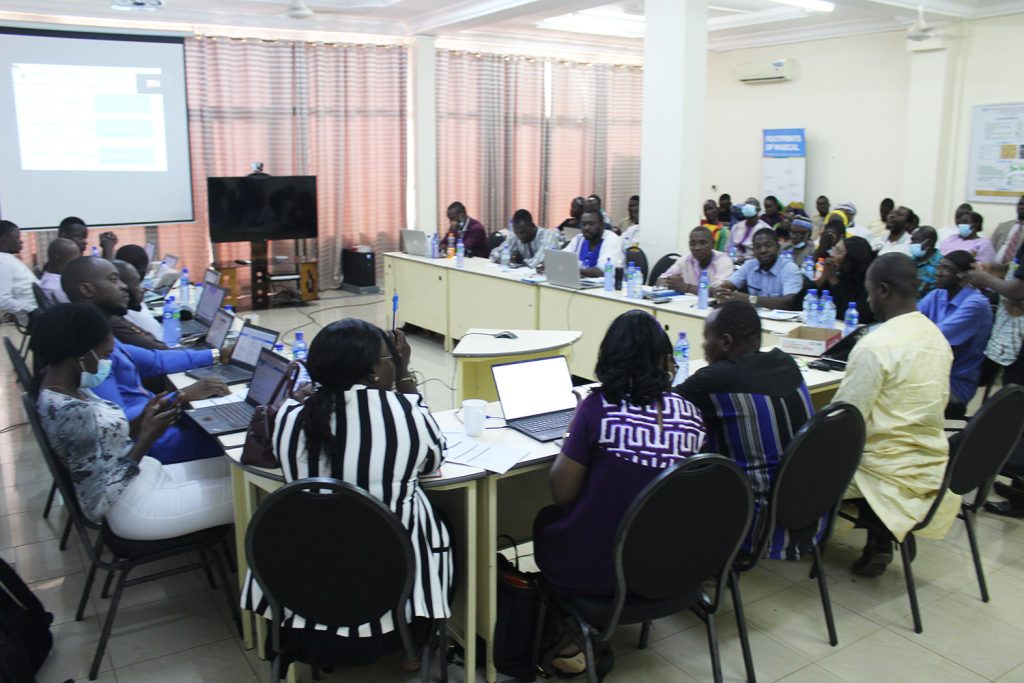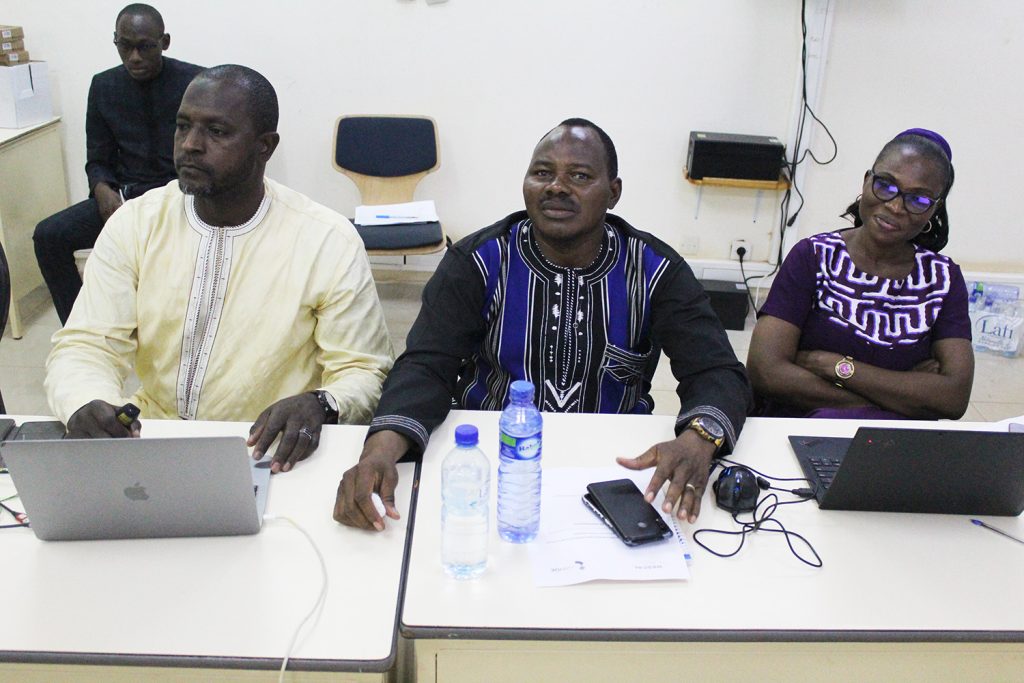
As a follow-up to the kick-off workshop held on 1st March 2022, which led to the establishment of a stakeholders’ network, the Living Lab of the City of Ouagadougou has organized a training workshop to train stakeholders on methods and data collection tools to enhance further their involvement in monitoring adverse weather conditions, high temperatures, and environmental pollution.
At the opening ceremony, Prof. Kehinde Ogunjobi, Director of Research, representative of the Executive Director of WASCAL, commended the stakeholders’ commitment and substantial involvement in the laboratory’s running. He also indicated that the I-change project comes at the right time about the material, human and environmental damage due to climate change.
‘’It is important to raise citizens’ awareness of the effects of climate change and promote a behaviour change for the benefit of our environment. We also must help citizens understand the challenge associated with the Paris Agreement”, he spoke.
Participants were trained on data collection tools such as meteo-tracker sensors, real-time flood form (ODK Clients), and the identification of model households using Kobotoolbox.
Participants also discussed issues concerning the implementation plan of the community service, the updated map of waste disposal sites, the distribution of coloured bins to model households, and the completion of the I-CHANGE stakeholder questionnaire, considering the expectations and contributions of each participant in the running of the Laboratory.
The workshop was attended by stakeholders from the Ouagadougou town hall, civil society organizations, and associations working in water and the environment.
The role of the Living Lab of West Africa – Ouagadougou (LLWA) is to use trans- and inter-disciplinary, participatory, and proactive approaches to better address the heavy rain events, wastes, and urban flash floods in the city of Ouagadougou in Burkina Faso.
The I-change project is funded by the European Union, within the framework of the European Green Deal, the European Pact for climate, and the European Biodiversity Strategy for 2030, with WASCAL and CIMA foundation as Lead partners.



